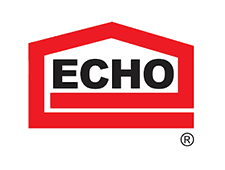TRI-STAR CONSTRUCTION: Sparkling Tri-Star Thrives Through Tough Term
Leading construction contractor, Tri-Star Construction, is coming out of three years of challenge with an optimistic outlook as it expands across SA and into Africa. CEO Derek Wheals, who has led the business for more than 25 years, tells Enterprise Africa about growth ambitions in a unique time.
A quarter century ago, Tri-Star was purchased by Derek Wheals and Billy McNeil. A decorating and renovations business, founded in 1979, Tri-Star underwent a period of change at the hands of the new owners. Wheals, a Quantity Surveyor, and McNeil, a construction industry specialist, quickly moved the company into the commercial construction space, and a year later starting on multi-unit housing jobs.
The following decade saw the company expand quickly and heavily, responsible for some of Gauteng’s most notable developments but recognised first and foremost for quality, on-time delivery much to the delight of clients who were eager to see a mid-tier partner emerge in the market which became dominated by giant corporates in the run up to the 2010 FIFA World Cup.
Today, the partnerships endure, and Tri-Star Construction is a trusted, reliable, multinational contractor. Head office buildings for the likes of BHP Billiton and Clientele, and industrial and commercial sites for DB Schenker and Crusader Logistics stand among hotels for Radisson and Marriot as some of the company’s flagship developments.
“When we bought it, it was turning over around R7 million per year,” CEO Wheals tells Enterprise Africa. “From there, we have grown the business to where it is now, in excess of R1 billion per year company. On average, each day there are 5000 people employed on our sites.”
But achieving such success has been no easy feat, and the company has had to be nimble but solid, and robust but flexible in recent years when economic conditions locally and globally – fuelled by the pandemic – have been unsteady.
BAD YEARS
The Covid years, where sites were closed and the flow of money dried up as investors and developers paused to take stock amid wild market conditions, were challenging for construction firms. Many had to adopt new structures to ensure safety, and others were simply left without work.
“Obviously 2020 was a bad year and 2021/22 was also a bad year because it put a lot of the developers who give us our work behind,” says Wheals.
Thankfully, the scale and professionalism built within Tri-Star allowed the company to manage through.
“The good thing is that we did come out fine – surviving and doing quite well,” explains Wheals. “A lot of our competitors have ended up in liquidation and have closed down. We have managed to survive and we increased our turnover last year by 50%. Most of that work is negotiated work because we are reliable and experienced delivery partners, we have great quality, we have good teams on the ground, we have good systems in place, and we produce really good work. Because of that, a lot of clients want to work with us and that is a good position to be in.”
In fact, the past two years, while challenging for the industry, have been very interesting for Tri-Star as it has taken on a number of fresh challenges even against the backdrop of a weak economic situation.
BUILDING, EXPANDING
Tri-Star is now active in Cape Town, taking on a number of significant projects across different industries. The office in the Western Cape opened with an initial focus on housing, and progress has been significant.
“We are building a big social housing project there (R400 million) and we are doing a lot of other housing projects in the Cape. We have been growing there at a good rate and we see it is a sustainable business opportunity,” says Wheals.
“It is a serious growth node in South Africa right now. It is expected that the population there will grow by 800,000 over the next five years and we see that as a good opportunity. We established a business there and that is going very well.”
Also in geographic expansion, Tri-Star was approached to work further afield, in the DRC, by a major international mining house, busy developing its site for significant production.
“We have entered into negotiations with a Canadian mining house for the project on one of the biggest copper mines in the world,” enthuses Wheals. “They are looking to roll out infrastructure and they have asked us as a contractor to come up and start building there for them. We have done the groundwork and we have been awarded our first contracts there, and we are now dispatching teams to go and start work there. That is very positive and we are looking forward to expanding our horizons in Africa.”
Often the next step for those that have seen significant success in SA, a step into Africa is a lucrative but risky jump. Wheals is using the project as a marker for future expansion on the continent, conscious of the Dollar-based nature of the work and the ever-risky Rand exchange rate. Currently, the project is exciting and will give the company good exposure to a new market.
Locally, Tri-Star is thriving in its home market around Johannesburg and Pretoria. In 2020, the government promised 62 significant Strategic Integrated Projects (SIPs) and the development of various mega cities were part of this.
“In Gauteng, we are getting into the development side, rolling out big housing projects and mega cities. We are working on one mega city near Pretoria – around 12,000 units and all of the ancillaries that come with it such as schools and hospitals – and another in Potchefstroom that is around 9000 units. We have been appointed as partners with government in a public-private partnership (PPP). These do take a while to roll out and we see them as 10+ year projects but they are a good stream of work going into the future.”
The Department of Human Settlements estimates that there remains a shortage of around two million low-cost houses – enough for 12 million people. With a reputation for delivery, Tri-Star is a perfect partner to assist in this national challenge.
QUALITY FOCUS
As much as attention around quality is placed on the end product for Tri-Star customers, the company has forever been sure to invest in quality in the supply chain so that its delivery remains as smooth as possible.
“We choose reliable, quality-based suppliers to ensure we get what we need on time,” affirms Wheals. “There are issues and some backlog getting supplies from China but it is not business-critical at this stage. The bigger problem locally is Eskom and loadshedding. That interrupts our supply chain as manufacturing is held up. That is a problem that we are feeling the effects of as it impacts the cost of goods that we receive. All businesses have to have back up supply in place and all of these things come with big costs which are passed onto the end consumer – that is a big problem.”
Since the beginning of the pandemic, and subsequently furthered by the Russian invasion in Ukraine, global shipping costs have skyrocketed and the supply of raw materials that feed the construction industry globally has dried up, adding to pricing woes. This is a smaller but important driver of the Tri-Star investment into building local capacity, growing South African SMMEs to become sustainable contributors in the industry’s value chain.
“We have made significant and successful inroads working in the communities where we work. We do a lot of work in townships and previously disadvantaged areas. One of the requirements here is to employ local and incubate and mentor local people into SMMEs. We have had a great deal of success working in communities and building up SMMEs. That gives us great satisfaction when we see these companies established and sustainable as contractors,” smiles Wheals.
Mitigating the energy problems is not a simple fix and even for large corporate structures or international brands, installing modern renewable systems or building with green materials and techniques is still expensive in South Africa. Even when efficiency systems are put in place, they often still require significant ongoing maintenance and some dependence on Eskom reliability, and this is not realistic.
“A lot of newer systems are expensive and South Africa simply can’t afford them – concrete, bricks, and mortar work best here,” Wheals states.
TURNKEY FUTURE
Despite the challenges of the past three years, Tri-Star is expanding and solidifying its reputation. Where many thought that 2023 could be a year of imminent collapse for the construction industry in South Africa, The SA Construction Market Report, from Construct Africa, predicts sector stabilisation at an annual average growth rate of 3% for the next three years.
With this is mind, Wheals and Tri-Star are committing to further growth.
“We have started an electrical and plumbing business in the past two years and the focus there is roll out of turnkey solutions which include solar panels, inverters, and batteries for business and residential units. It is a focal point and is something new for us,” he says.
More widely, consistent, stable, and sustainable expansion is on the cards. “The plan for the next three to five years is to grow the business organically as we currently are. We want to be a contractor of choice that developers negotiate with rather than a run of the mill builder. Building relationships with clients is an important focus for us, allowing us to grow organically through SA and into the DRC,” he adds.
Today, Tri-Star is a far cry from the business of 26 years ago, and Wheals is a pleased with what has been achieved. However, typically entrepreneurial, he is ambitious for more.
“Growing our business in tough times is going well and being resilient in the past two years is a positive thing. Growing into the Western Cape, the DRC, and locally in Gauteng is something we are proud of. We always continue to inspire and uplift our people,” he concludes.


